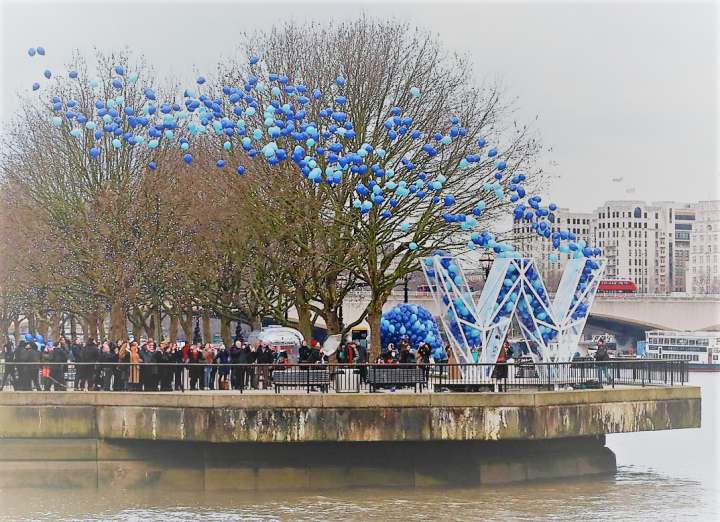Happy Earth Day!
As you’ve probably gathered, the Daily Footprint is about evaluating the social and environmental impact of the stuff we use every day. But what if we’re dealing with a special day that requires some kind of celebration? We’ve already had New Year’s, Valentine’s Day, St. Patrick’s Day, Easter, among others, and probably a family birthday or two. It’s at times like these that we’re more likely to forget about the impact that our lives have on others. We tell ourselves, “Oh, it’s a special occasion…” and give ourselves a holiday from responsibility. And that’s unfortunate because it means that we are at our most frivolous during peak consumer times, i.e., when we can cause the most harm.
Special days are not that rare: on an average day, 20 million people around the world are celebrating their birthday. In many native cultures birthdays were not celebrated (except for a special coming of age celebration) but these days the majority of people celebrate with the paraphernalia of balloons and plastic cups, utensils, and straws.
Stop with the balloon releases!
Last month, the Marine Conservation Society called for a ban on balloon releases in London (such as the one pictured below) after they found 53% more balloon-related litter on beaches last year compared to 2015. It’s hard to justify why anything should be “celebrated” by releasing hundreds of balloons into the air, from where they end up in ditches and oceans. Planting a commemorative tree would be a better plan.
Also, did you know that helium, although plentiful in the sun, is rare here on earth and can’t be manufactured? Once we run out of helium there’s no more to be had. Which is a shame because helium is needed for all kinds of useful things like lab equipment and MRIs. So it’s time we grew out of helium balloons.

France plans to ban plastic cutlery!
France has announced plans to ban plastic plates and cutlery by 2020, except for compostable items made from renewable sources. This announcement hasn’t gone uncontested. Pack2Go Europe, an industry association that represents packaging manufacturers, announced:
“We are urging the European Commission to do the right thing and to take legal action against France for infringing European law,” he said. “If they don’t, we will.”
(As mentioned before, always be wary of what you hear from industry associations, councils, special interest groups and certain think tanks.)
Stop with the plastic straws!
But it does look like the tide is gradually turning against needless plastic waste. Starting today, Earth Day, the owner of the UK pub chain Oakman Inns is no longer offering straws in their establishments. It turns out that they had been giving out over 100,000 straws per month among only 18 establishments. A drinking straw is a good example of an item that 99% of us don’t need. And if you really do need one then you can carry a reusable straw.
If you think you’d enjoy seeing Adrian Grenier, De La Soul, and others being slapped by a giant squid, please take a look at this #StrawlessOcean video from the Lonely Whale Foundation:
Zero Waste Party!
So, in conclusion, I’m not saying don’t have cake! Where would we be without cake? And for items like plates, cups, utensils, and straws there are many options (for times when you need extra) from resusable to paper to edible to compostable. If you are interested in bioplastic, I did a comparative review of three brands of compostable bag: Bio Bags (4/5 Green Stars), If You Care (5/5 Green Stars), and World Centric (5/5 Green Stars). If You Care also makes various eco-friendly baking supplies such as unbleached baking cups while World Centric makes a range of compostable items including plates, utensils, and straws. I think they are all good companies – particularly World Centric (see the review for more details). Their compostable items are primarily composed of a polymer called polylactic acid (PLA) that’s made by microbial fermentation of plant starch and sugar. Yes, the plants have to be grown (which requires energy inputs) but NatureWorks, who make the PLA (tradename, Ingeo) have conducted life cycle analysis (LCA) that shows that it requires significantly less energy than conventional plastics (and they have plants to improve upon this in future).
All in all, it’s pretty easy to reduce your impact when you celebrate something. It just requires a little advance party planning 😉
And, once again, Happy Earth Day!
